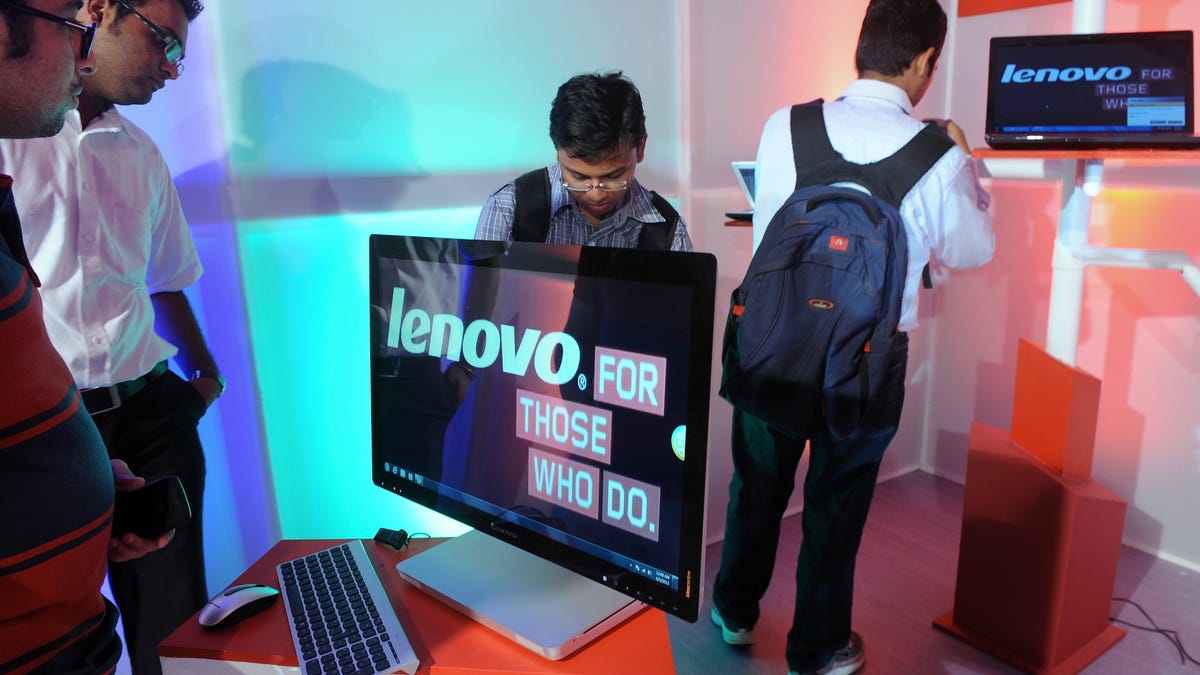Meet Lenovo: The overnight hardware colossus
Until 1990, the company was an agent for imported computer products. That's the year it sold its first branded PC.

Not that Lenovo was a shrinking violet until now. The company already was the world's biggest personal computer maker after moving ahead of Hewlett-Packard in the third quarter of last year. Not bad for a company which was an agent for imported computer products until it sold its first computer in 1990.
The breakout year came in late 2004 when it announced plans to purchase IBM's personal computing division. During its most recent fiscal quarter, Lenovo posted a net profit of $219.7 million compared with $162 million a year earlier, adding to a three-year streak of double-digit quarterly profit growth.
Then last week, Lenovo again made headlines when it shelled out $2.3 billion to acquire Big Blue's server business. And in a surprise move Wednesday, the company announced an agreement to buy the Motorola Mobility smartphone unit from Google for about $2.91 billion. (Yang hasn't tried to disguise his desire to buy a smartphone company. In an interview last August with The Wall Street Journal, he left the clear impression that Lenovo intended to go shopping to help make that happen. Unfortunately for the reporter, Yang got asked about BlackBerry, not Motorola.)
The flurry of blockbuster deals fits with Lenovo's ambition to transform itself from being known primarily as a PC maker into a company with extensive technologies ranging from mobile devices to the enterprise server level.
Lenovo's tablet business is still relatively small, but it grew an astonishing 325 percent in the fourth quarter compared with a year earlier. Another encouraging harbinger for a company that hopes one day to derive the majority of its revenue from mobile devices: Lenovo is expanding its smartphone business at a rapid clip and now ranks as the fourth-largest smartphone vendor in the world. Sales from mobile phone sales more than doubled during Lenovo's first half of its fiscal year compared with a year earlier. Most of that business comes from China, so adding Motorola Mobility to the mix can only extend Lenovo's mobile reach globally, a point that Yang alluded to in his announcement today.
"The acquisition of such an iconic brand, innovative product portfolio, and incredibly talented global team will immediately make Lenovo a strong global competitor in smartphones. We will immediately have the opportunity to become a strong global player in the fast-growing mobile space," Yang said.That's the sort of hype you'd expect would accompany a big acquisition. And while Yang has an impressive track record, Lenovo has much work remaining before it can hope to seriously challenge Apple and Samsung in the US smartphone market. (In its most recent quarter, sales of smartphones and tablets in the US were up more than 100 percent -- nice growth but at $1.5 billion, still relatively small compared to Lenovo's largest rivals.) But if past is prologue and Yang can leverage Lenovo's other businesses as successfully as he's managed its PC operations, there's no reason he can't shake up the existing constellation of forces.
It may mean headaches for the likes of Tim Cook, but for consumers, that can only promise more choice.

